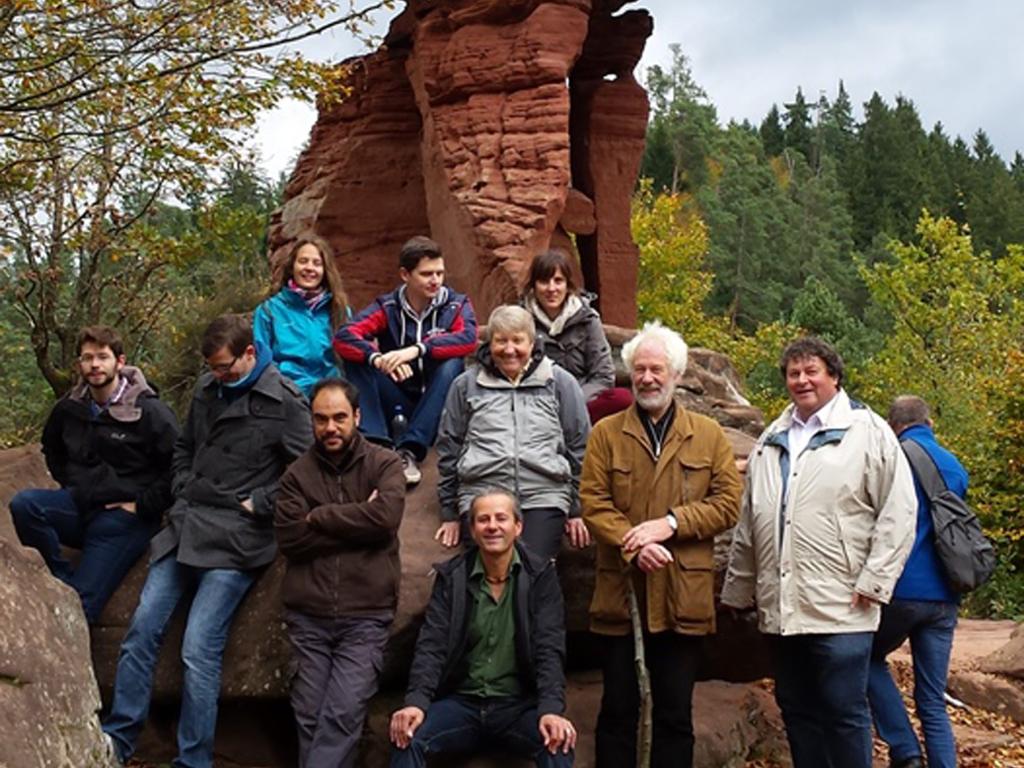Director of the PCU visits colleagues in Belgium and Germany


|
Delegates from the workshop on the Brazilian Caatinga posing beneath the Teufelstisch ('Devil's Table') in the Palatinate Forest in south west Germany (Photo M.T. Hoffman)
Professor Timm Hoffman, Director of the Plant Conservation Unit (PCU) visited colleagues in Belgium and Germany from 14th-25th October 2014 to explore potential collaborative research and staff/student exchange opportunities. First stop was at Professsor Jan Nyssen’s lab at Ghent University in the beautiful old city of Ghent, Belgium. Jan has been working in Ethiopia for decades, primarily on issues concerned with land degradation and soil erosion and has the largest collection of repeat photographs available for Ethiopia. Since this is a major tool used by researchers with the PCU it made sense to visit Jan and his students and find out what they are doing. Detailed measures of soil erosion and 3-D modelling of erosion channels before and after rainfall events are just some of the projects undertaken in Jan’s lab. Besides learning about Jan’s work in Ethiopia Timm gave a seminar in the Department of Geography at Ghent University in which he outlined the work being done at the PCU using a range of long-term research approaches to document the nature, extent and rate of vegetation change in southern Africa.
The second visit was to the University of Kaiserslautern near Frankfurt in Germany where Timm participated in a workshop with colleagues from Germany, Brazil, Spain and the United States of America. The aim of the workshop was to explore potential collaborative research projects in the Caatinga biome of north eastern Brazil where little is known about the impacts of land use on the biota of this unique region. Colleagues from the University of Kaiserslautern such as Rainer Wirth and Burkhard Büdel have a long history of working in other parts of Brazil and are looking to expand their research programme into the Caatinga. Timm shared his experience in long-term ecological research and land degradation studies in southern Africa, particularly the use of repeat photography as a monitoring and evaluation tool with the workshop delegates.
The event took place in the tranquil Maria Rosenberg Catholic Monastery surrounded by the lush Palatinate Forest of south western Germany. Several walks in these beech-dominated woodlands provided a glimpse of the kind of local research carried out by some of the undergraduate students at the University of Kaiserslautern. Opportunities for collaborative work in the Caatinga will hopefully emerge in 2015.
Article by M.T. Hoffman
